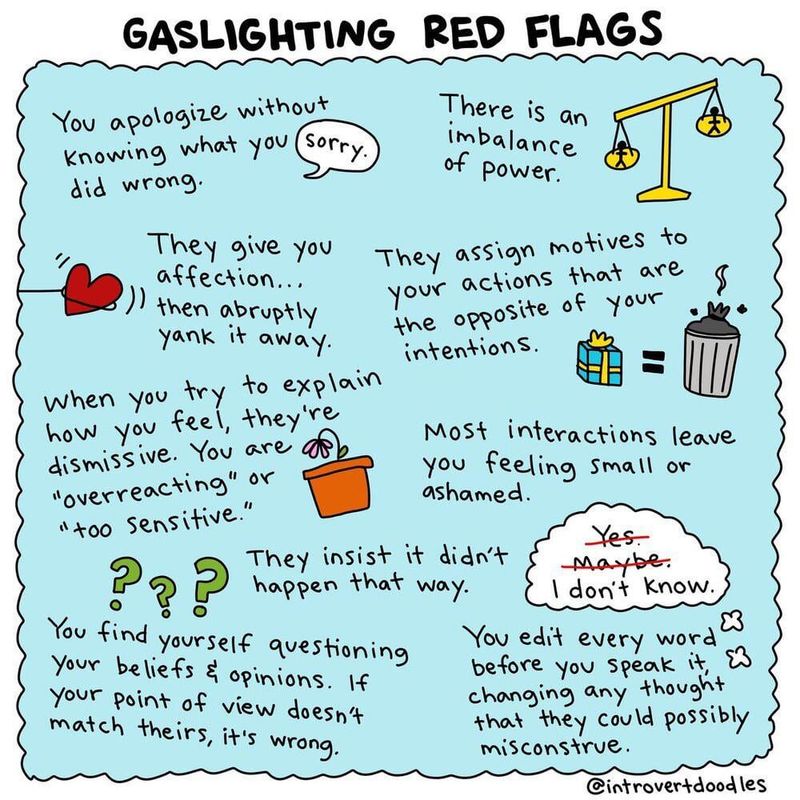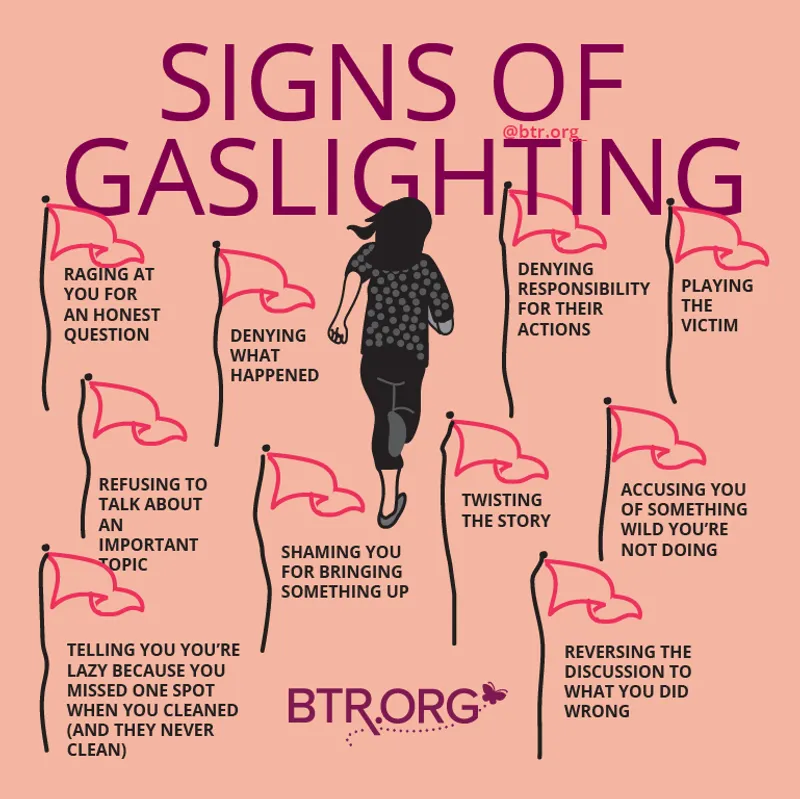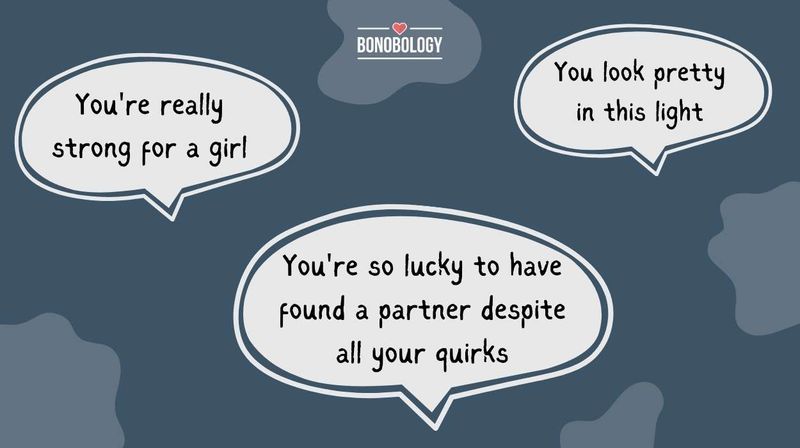Gaslighting is a form of psychological manipulation where a person or group makes someone question their reality, memories, or perceptions. It can be subtle but has profound effects on an individual’s mental health, self-esteem, and trust in others.
Recognizing these signs early can prevent prolonged emotional distress and empower you to reclaim your sense of self. This guide will help you understand and identify 17 red flags of gaslighting that should never be ignored.
From undermining your memory to isolating you from loved ones, each of these tactics aims to destabilize and control. Awareness is the first step to regaining your confidence and autonomy.
1. They constantly make you doubt your memory
Gaslighters excel in making you doubt your own memories. They often insist that events you clearly remember never happened, or happened differently than you recall. This can lead to a growing sense of confusion and self-doubt. You might find yourself questioning your perception of past events, making you more reliant on the gaslighter.
This tactic serves to weaken your confidence in your recollections and make you more pliable to manipulation. If you start second-guessing your own memories, it’s a sign that the gaslighter’s influence is taking hold. Over time, this can erode your self-trust and make you dependent on them for your sense of reality. Trust your instincts and seek external validation from trusted sources.
2. You’re told “you’re overreacting” all the time
Being told ‘you’re overreacting’ is a common strategy used to dismiss your feelings. When you express emotions or concerns, the gaslighter may label them as exaggerated or unwarranted. This trivializes your emotions and can make you question whether your reactions are justified.
By constantly being made to feel that your emotional responses are excessive, you may start suppressing your feelings to avoid criticism. This serves to silence you and diminish your confidence in expressing genuine concerns. Recognize this pattern and remind yourself that your feelings are valid. It’s crucial to stand firm in your emotions and seek support from those who respect your perspective.
3. Your feelings are brushed off as “too sensitive”
The phrase ‘too sensitive’ is often wielded by gaslighters to negate your emotions. Rather than acknowledging your feelings, they label you as overly emotional, implying your experiences are invalid. This can lead to self-censorship, as you start editing your reactions to appear more ‘acceptable.’
This tactic serves to belittle your emotional responses and make you question their legitimacy. By consistently hearing that you are too sensitive, you may begin to doubt your emotional reality and feel isolated in your experiences. Don’t allow this narrative to take root; seek validation from friends or therapists who affirm your feelings.
4. They twist your words against you
Gaslighters are adept at twisting your words to suit their narrative. They may take something you said and present it out of context, making it appear as though you meant something entirely different. This manipulation creates a warped perception of your intentions and can cause significant internal conflict.
This strategy aims to make you question your communication skills and intentions. As your words are used against you, it becomes increasingly difficult to trust your ability to convey your thoughts clearly. Stand firm in what you know you said, and clarify when misrepresented. Keeping a record of conversations can also help maintain clarity and prevent distortion.
5. You start apologizing even when you’re not wrong
Constantly apologizing, even when it’s unwarranted, is a significant red flag of gaslighting. You may find yourself offering apologies to diffuse tension or avoid conflict, even when you’ve done nothing wrong. This habit can erode your self-esteem and foster a false sense of culpability.
Gaslighters thrive on this dynamic as it reinforces their control. By making you feel responsible for issues they caused, they shift the blame onto you, maintaining their power. Recognize when an apology is unnecessary and stand firm in your convictions. It’s essential to understand that you’re not responsible for someone else’s manipulation tactics. Seeking outside perspectives can help affirm your reality.
6. Their version of events never matches yours
Discrepancies in recounting events are a hallmark of gaslighting. The gaslighter will often present a version of events that completely contradicts yours, leaving you puzzled and uncertain. This tactic is designed to make you doubt your perception and memories.
When faced with constant denials of reality, you may begin to question your sanity, feeling trapped in an alternate version of events. This can lead to an erosion of self-confidence and increased reliance on the gaslighter’s narrative. Trust your recollection and seek corroboration from others who witnessed the same events. This external validation can help reinforce your sense of reality.
7. They blame you for their bad behavior
Blaming others for their own misconduct is a manipulative tactic frequently used by gaslighters. When confronted about their behavior, they may deflect responsibility and accuse you of provoking them, suggesting you are the root cause of their actions.
This reversal of blame creates confusion and self-doubt, making you question your role in the situation. It also serves to absolve the gaslighter of accountability, while placing the burden on you. Recognize this gaslighting sign and understand that you are not responsible for someone else’s actions. Maintain your boundaries and seek clarity from outside perspectives.
8. You’re accused of things you didn’t do
False accusations are a powerful tool for gaslighters to maintain control. By accusing you of actions or intentions you never had, they create an environment of distrust and defensiveness. This can lead you to constantly justify yourself and prove your innocence.
These unfounded accusations serve to keep you off balance and question your own integrity. It’s essential to remain grounded and confident in what you know to be true. Keep records of your actions and communications if necessary, and seek support from impartial parties who can provide perspective and reassurance.
9. They change topics to avoid accountability
Topic shifting is a classic diversion tactic used by gaslighters to evade responsibility. When confronted about their behavior or inconsistencies, they may abruptly change the subject, steering the conversation away from their actions.
This redirection serves to avoid accountability and confuse the dialogue, leaving you feeling unheard and invalidated. As they deftly maneuver the conversation, you may struggle to maintain focus on the original issue. It’s important to recognize this tactic and steer the conversation back to the topic at hand. Assertively maintain the focus and insist on addressing the original concern.
10. Compliments are mixed with subtle insults
Backhanded compliments are a deceptive gaslighting tactic. By merging praise with subtle criticism, the gaslighter creates confusion and doubt. A statement like ‘You’re smart for someone who didn’t go to college’ seems complimentary but carries an underlying insult.
These comments are designed to undermine your self-esteem and keep you on edge, constantly questioning the sincerity of the praise. By alternating between praise and criticism, the gaslighter maintains control over your emotional responses. Recognize these mixed messages for what they are, and reinforce your self-worth by focusing on earnestly supportive feedback from trusted individuals.
11. You second-guess your own judgment
Self-doubt is a common consequence of gaslighting. As you begin to internalize the gaslighter’s manipulative narratives, you may find yourself questioning your own decisions and judgment. This can lead to a pervasive sense of uncertainty about your abilities and choices.
The gaslighter benefits from this doubt, as it makes you more reliant on their guidance and approval. By undermining your confidence, they maintain a power imbalance in the relationship. Combat this by affirming your instincts and seeking validation from supportive friends and mentors. Building trust in your own judgment is crucial to regaining your autonomy.
12. You’re made to feel like the problem constantly
Consistently feeling like the problem is a deliberate strategy employed by gaslighters. They may project their issues onto you, making you feel responsible for the discord in the relationship. This tactic is designed to erode your self-worth and create a sense of inadequacy.
By internalizing this blame, you may begin to believe you are inherently flawed, which reinforces the gaslighter’s control. It’s essential to recognize this manipulative pattern and reject the notion that you are the source of the problem. Seek reassurance from those who see your true value and provide an unbiased perspective.
13. They isolate you from supportive friends or family
Isolation is a powerful tool for gaslighters. By cutting you off from your support network, they ensure you become more dependent on them for emotional and social needs. They may subtly discourage you from seeing friends or family, or speak negatively about them, creating distance.
This isolation serves to consolidate their control and diminish external influences that might challenge their narrative. Recognize attempts to isolate you and actively maintain connections with those who affirm your reality. Your support network is vital in providing perspective and strength against gaslighting tactics.
14. Your achievements are minimized or mocked
Minimizing or mocking achievements is a tactic used by gaslighters to undermine your self-worth. Rather than celebrating your successes, they may downplay them or make dismissive remarks, suggesting your accomplishments lack value.
This belittlement is aimed at chipping away at your confidence and reinforcing the gaslighter’s dominance. By making you feel your successes are trivial, they maintain control over your self-esteem. Counter this by recognizing your achievements and seeking validation from those who genuinely support you. Celebrate your victories and understand their significance, independent of the gaslighter’s perspective.
15. They pretend not to understand your concerns
Feigning ignorance is a manipulative tactic gaslighters use to dismiss your concerns. When you express issues or needs, they may pretend not to understand, making you feel as if your requests are unreasonable or unclear.
This feigned confusion serves to undermine your confidence and persistence in addressing important matters. By repeatedly denying understanding, they shift the burden onto you, making you question the validity of your concerns. Recognize this tactic and persist in communicating your needs clearly. Seek clarity from supportive parties who acknowledge your perspective and validate your feelings.
16. They use your vulnerabilities against you later
Gaslighters often exploit your vulnerabilities to maintain control. By using personal information shared in confidence against you, they create a sense of betrayal and mistrust. This tactic is designed to keep you guarded and hesitant to share in the future.
These betrayals serve to deepen emotional manipulation, making you question your judgment in confiding in others. Recognize this pattern and be cautious in sharing sensitive information with those who have previously weaponized it. Building trust with supportive individuals who respect your vulnerabilities is crucial in counteracting gaslighting tactics.
17. You feel exhausted trying to “prove” yourself
Constantly feeling the need to prove yourself is a draining consequence of gaslighting. You may find yourself repeatedly justifying your actions, feelings, and perspectives to gain validation from the gaslighter. This relentless need for approval can lead to emotional and mental exhaustion.
The gaslighter thrives on this dynamic, as it reinforces their control and keeps you focused on seeking their validation. Recognize when you are overextending yourself to earn approval, and focus on validating your own worth. Prioritize self-compassion and seek affirmation from those who value you for who you are, without conditions.


















